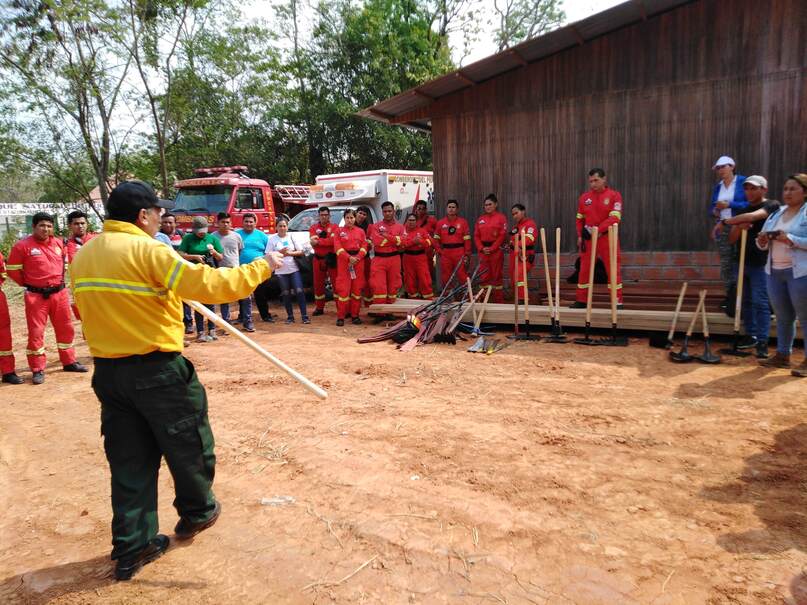ITTO to revise fire management guidelines, Executive Director tells Fire Hub meeting
31 May 2024

Training of a fire brigade in Pasco, Peru, conducted under an ITTO project. Photo: SERFOR
Rome, Italy, 31 May 2024: ITTO is revising its guidelines on fire management in tropical forests to incorporate new knowledge and to respond to the increasing risk of tropical forest fire due to climate change and pressures from land-use change and encroachment, ITTO Executive Director Sheam Satkuru told participants at a meeting at FAO headquarters this week.
In her statement at the Third Technical Workshop of the Global Fire Management Hub, which was delivered by ITTO consultant Dr Hwan Ok Ma, Ms Satkuru indicated that ITTO’s collaboration with FAO and other partners exemplified the shared commitment to addressing the negative impacts of landscape fires on the environment and people. The planned revision of the ITTO Guidelines for Fire Management in Tropical Forests is part of a joint initiative with FAO and other members of the Collaborative Partnership on Forests to encourage the wider uptake of integrated fire management in tropical forests.
“We underscore the urgent need for enhanced collaboration and action, both locally and globally, to reduce the impacts of forest fires, which are growing in frequency and severity across the globe,” Ms Satkuru stated. “Effective capacity building is crucial, along with greater knowledge exchange and the development of robust strategies for integrated landscape fire management.”
In her statement, Ms Satkuru outlined ITTO’s long history of encouraging integrated fire management in tropical forests. The Organization published the ITTO Guidelines for Fire Management in Tropical Forests in 1997 with the support of many experts, including Dr Johann Goldammer (Germany), when they were the first international guidelines of their kind. Since then, ITTO has supported numerous member countries to build their fire management capacities through projects and training and also helped facilitate international cooperation in this field.
The statement referred to two recent projects to build capacity in tropical forest landscape fire management in Indonesia and Peru, which were both funded through Japan’s Emergency Support Programme. An evaluation of one of these initiatives highlighted the invaluable insights gained over the past three decades through ITTO’s work.
Nevertheless, the rising threat of tropical forest fires means that much more needs to be done throughout the tropics.
“ITTO remains committed to prioritizing investments and providing continued support for capacity building in fire management across our members,” Ms Satkuru said. “We look forward to leveraging our strengths and working collaboratively to ensure the synergy and effectiveness of the Global Fire Management Hub.”
The Global Fire Management Hub, an initiative led by FAO and the United Nations Environment Programme, is supporting communities and countries in their efforts to implement integrated fire management. The approach combines traditional and scientific knowledge and the latest technologies with the aim of reducing the negative impacts of wildfires on livelihoods, landscapes and climate.



